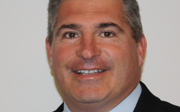In addition to being a popular TV series on the manipulative schemes of politicians, a house of cards is a ‘structure that will collapse if a necessary but possibly overlooked or unappreciated element is removed,’ according to Wikipedia.
In the world of funds, this crucial element can be fee management – the often overlooked and highly manual process that is responsible for millions of dollars in expenses and potentially unnecessary or mistaken cost.
Is it possible that manual fee management is the card that will bring the house down?
With ongoing regulatory challenges, firms are now required to demonstrate transparency and accuracy to investors. According to a recent survey Bonaire conducted in the first quarter of this year, 81% of respondents cited the Foreign Account Tax Compliance Act (Fatca) as the top regulatory initiative influencing the funds business.
More than 75% of respondents stated that regulations such as Fatca, Ucits IV and the Alternative Investment Fund Managers Directive are prompting firms to deliver greater transparency to investors.
The path to delivering transparency is not a road well-travelled. Many firms still rely on a hodgepodge of spreadsheets and manual processes to calculate and manage fees.
Automating the fee billing and management process empowers fund firms to be both transparent and accurate. Although not all fee leakage cases have been high profile, a major case came under investigation last year when a large custodian was accused of overcharging Ireland’s state pension fund and others.
If a fund firm discovered that it had been errantly overcharging its clients – whether that client was a major institution or a retail investor – fee leakage can damage reputations and break investors’ trust.
And, like a house of cards, a single shaky element can topple an institution.
Bringing a higher degree of automation and technology to the fee management process is not merely about avoiding front page scandals, however.
The other aspect of automated fee management is growth. With growing competition and emerging centres of wealth, fund companies are anxiously pursuing new avenues for expansion.
According to our survey, 86% of respondents were leveraging technology to spur additional business in Luxembourg, a continued centre of growth. By utilising technology, fund companies can reduce operating expenses
and minimise, if not eliminate, fee leakage. This may be costing a firm hundreds of thousands of dollars or euros.
By relieving itself of unnecessary cost burdens, firms can better invest in growth opportunities rather than sinking expenses into wasteful manual processes.
Fund companies should ask: do they live in a house of cards or in a stone house? How strong is the foundation? And where are the weak links? With ongoing uncertainty in the eurozone, new emerging markets and increased competition for assets, firms must invest in technology and automation to shed costs and properly pursue growth.
The industry needs to ensure that the process of fee management is not the card that brings the house down, but the strong foundation upon which we can build and fortify our industry.
Chris John is chief executive officer at Bonaire Software Solutions
©2013 funds europe





